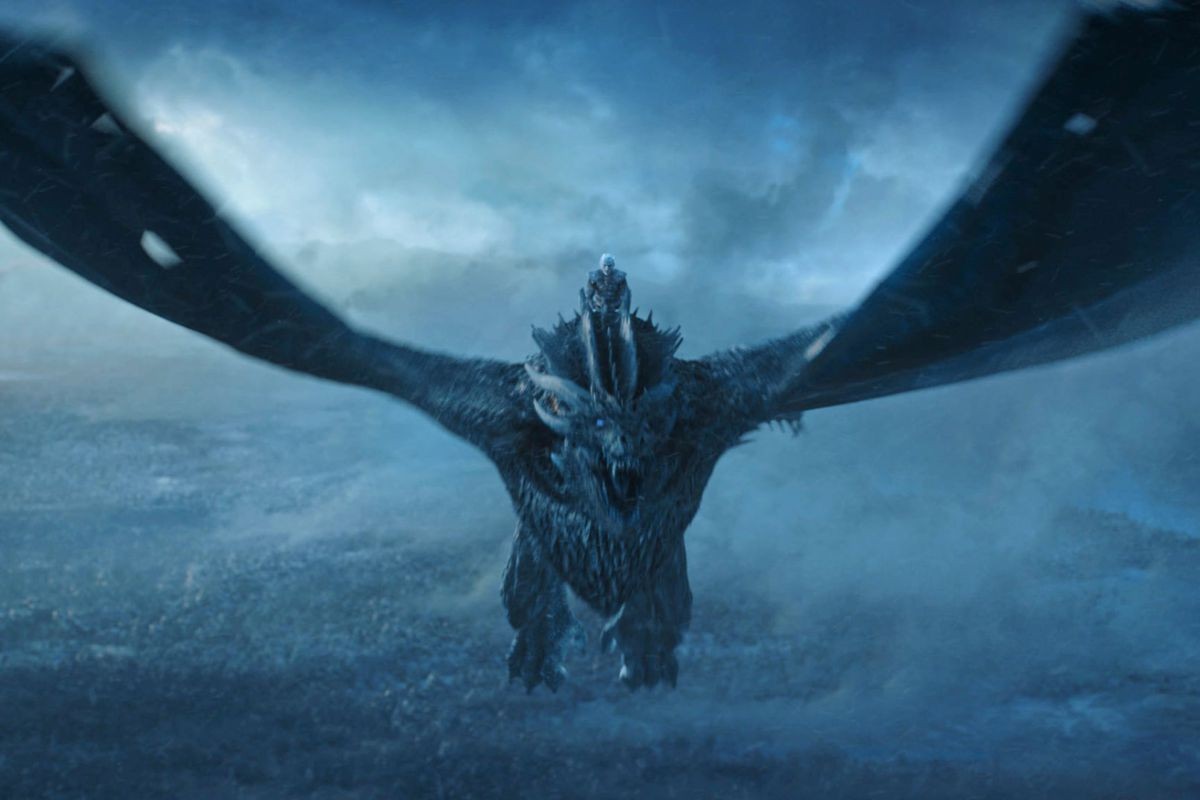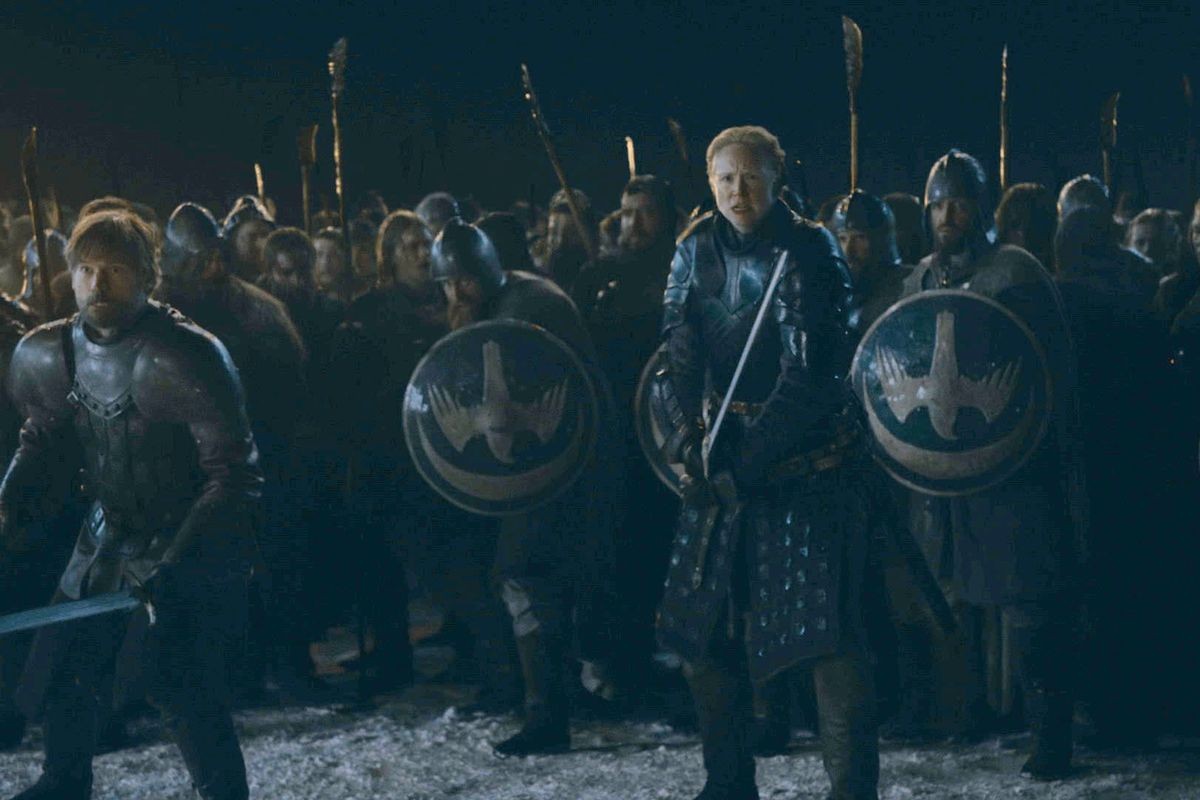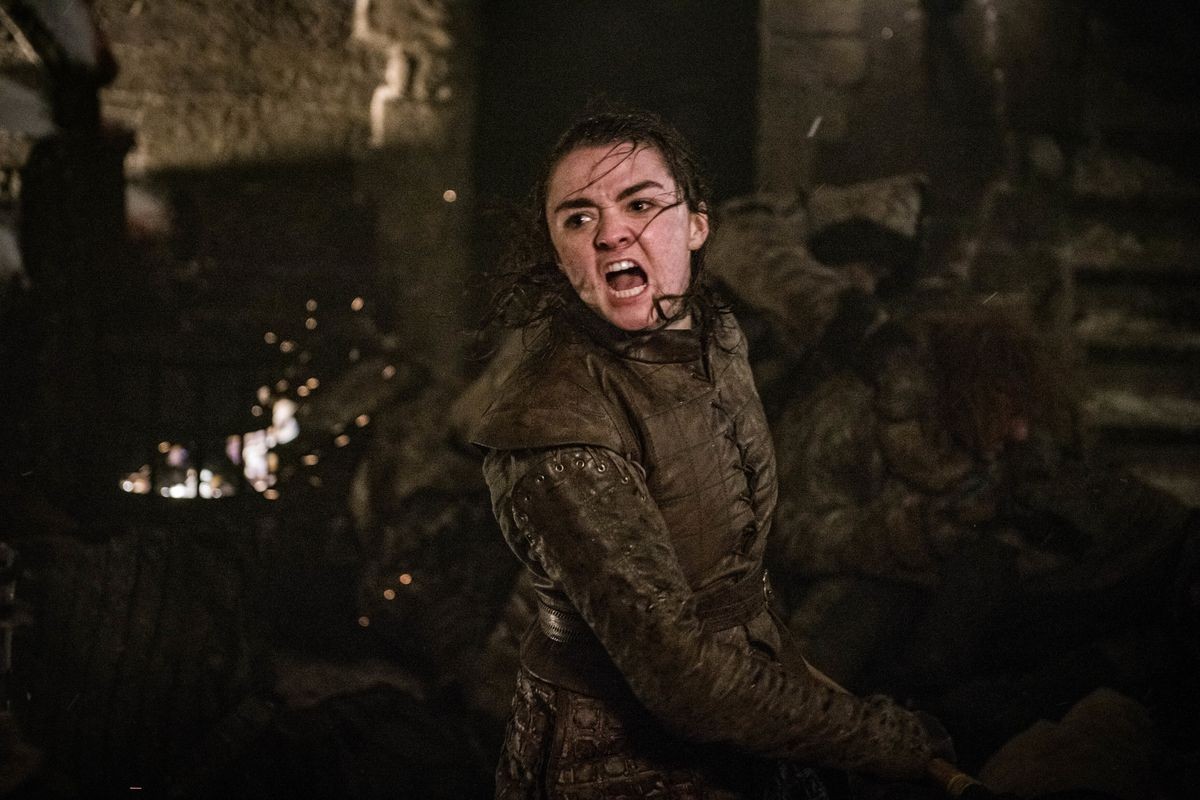 courtesy HBO
courtesy HBO
The Night King (Vladimír Furdík) rides Viserion into battle.
How I feel about my longtime favorite show, Game of Thrones, crystallized recently when I saw a behind-the-scenes promotional video featuring George Lucas’ visit to the set. The show has journeyed from Star Trek to Star Wars, from science fiction carefulness about its worldbuilding to fully realized mythic fantasy. And within that, another movement: from the revelatory appeal of the original trilogy to the bloated nature of the prequels. Showrunners David Benioff and D.B. Weiss were adept at adapting George R.R. Martin’s novels, cutting the excess and creating momentum from the morass of detail. But having run out of novels to adapt, they now make up material whole cloth. They favor sudden reveals of plot and character development, twists which pay off simultaneously with half-convincing explanations of how they occurred.
Game Of Thrones Lives To Fight Another Day
Now it’s unclear where characters’ foibles end and where their stupidly for the sake of plot movement begins. The political bickering is nonsensical, the speech less thoughtful and more modern. The pleasures of the show are that of any well-made spectacle. Dragonriders Daenerys Targaryen (Emilia Clarke) and Jon Snow (Kit Harington) have fallen in love with the all the conviction of bored real estate attorneys in a late afternoon deposition. Tyrion Lannister (Peter Dinklage) gets chided for his lack of cleverness, in a retcon of how TV has softened him from the novels, where he is a more murderous and angry drunk. A long-awaited battle has come and gone.
 courtesy HBO
courtesy HBO
Jamie Lannister (Nikolaj Coster-Wildu) and Ser Brianne of Tarth (Gwendoline Christie) prepare for the undead onslaught during the Battle of Winterfell.
Because the second half of this season is yet to air, I cannot say whether these storylines will pull together into a beautiful meditation on all that comes before (online spoilers work like prophecies in the books—vaguely and inconsistently). They still could. I still worship the show even as I criticize it, and spend free time discussing and studying it. But always at my back, I hear my snobbery toward sports. How am I different from a casual football fan? Where the avid sports watcher admires the skill of athlete, I admire the production craftsmen who make this extravaganza. Both are fundamentally passive relationships. The only difference is when the show was better, I was using my brain to work out the mechanics of a fictional world. Now I just receive it, like dictates from the Pope.
The battle between the living and the dead in episode 3 of this season was wonderfully tense. I like director Miguel Sapochnik’s continual stress on the confusion of violence, and how one’s personal narrative gets lost in the chaos of battle. Jon Snow again unheroically flounders through combat. His dragon collides with his lover/aunt’s, foreshadowing what I suspect will be the real conflict post-White Walker. However, that the series’ demonic threat would be defeated in one moment after a single battle with many survivors, felt like a cheat and a mistake.
Criticisms of the episode’s lack of battle geography and dark cinematography miss Game of Thrones’ current strengths. In large setpieces, it gets the feeling of small horrific or supernatural details right. Commenters pointed out that it was an incorrect use of cavalry for the mounted Dothraki to charge into blind darkness and a zombie horde from an opening defensive position, but the visual of soldiers watching their comrades’ fiery swords go out in faraway silence communicated the ebb and flow of hope in a battle. You get the sense of how it feels to be an individual swept up in a mass event.
 courtesy HBO
courtesy HBO
Maisie Williams as Arya Stark
As a fan of this one, sometimes my only recourse to imaginatively engage with a story is to criticize how it fails my expectations. At worst this can be criticism similar to a shoe-buyer complaining about a tight fit: the consumer and his product, in a swan song as their life goes by. But at best the simple act of discussion can engage with communal storytelling, and the ideas stories communicate. Two here are that might makes right, not honor, and that the upper classes focus on increasing their power instead of dealing with threats to the lower classes. I would say this is a general condition of humanity. How can the majority of us be truly free when the powerful always corrupt whatever structure contains them?
Where before describing these ideas was exciting, the show is now something like America’s Most Photographed Barn in Don DeLillo’s White Noise. I can feel the meaninglessness of my voice among the din. But the ritual is a balm, and the central allegory is still there, and still important.